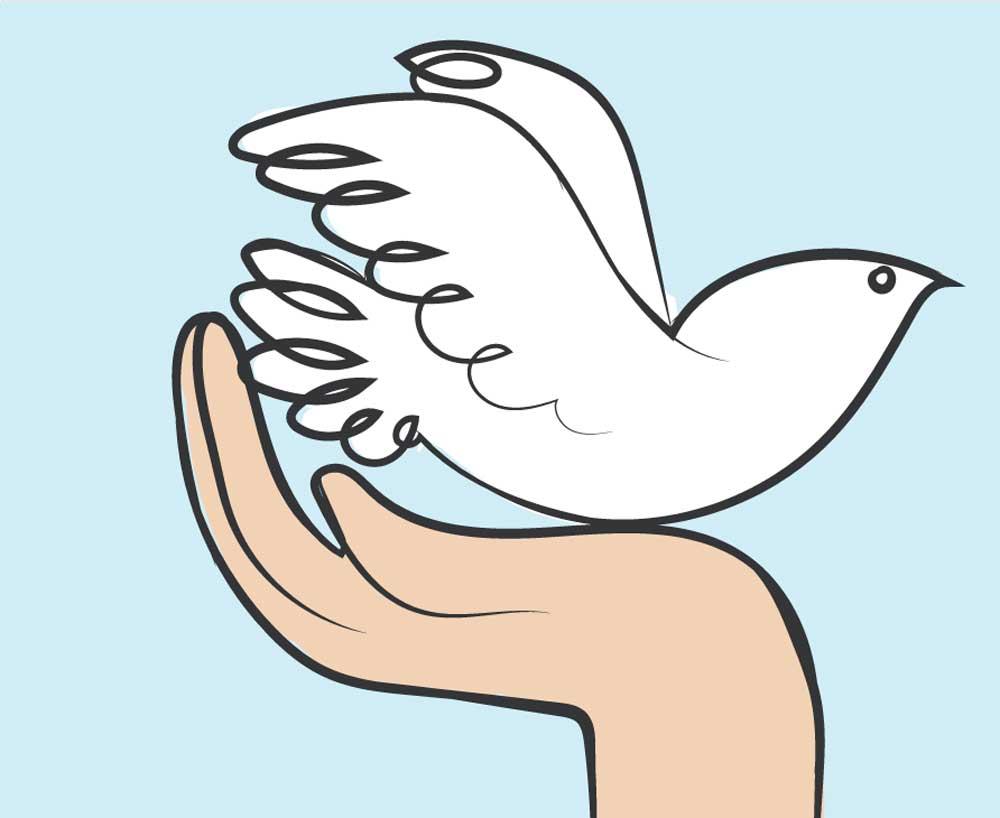Reply To:
Name - Reply Comment

The United Nations yesterday (2) observed the International Day of Non-Violence. October 2 was especially designated as the Day of Non-Violence as it is the birthday of Mahatma Gandhi, who was the leader of the Indian independence movement and pioneer of the philosophy and strategy of non-violence.
Gandhi’s movement toppled the world’s then most powerful British empire– although the British Prime Minister and war hero, Winston Churchill, degraded Gandhi as a ‘half-naked fakir’.
In a statement, the UN noted that Gandhi’s name transcends the bounds of race, religion and nation-states, and has emerged as the prophetic voice of the twenty-first century. Gandhi, who helped lead India to independence, has been the inspiration for non-violent movements for civil rights and social change across the world. Throughout his life, Gandhi remained committed to his belief in non-violence, even under oppressive conditions and in the face of seemingly insurmountable challenges.
Gandhi strongly believed that it was irrational to try to use violence to achieve a peaceful society. He held that Indians should not use violence or hatred in their fight for freedom from colonialism.
Through the principle of non-violence — also known as non-violent resistance — the UN rejects the use of physical violence to achieve social or political change. Often described as “the politics of ordinary people”, the principle of non-violence has been instrumental in global campaigns for social justice.
We saw this in Sri Lanka in the campaign of Janatha Vimukthi Peramuna backed National People’s Power (NPP). For weeks and months, predominantly in many districts out of Colombo, our new President Anura Kumara Dissanayake gave an excellent example of non-violent house to house campaigning.
On September 23, President Dissanayake was sworn in by Chief Justice Jayantha Jayasuriya in a simple ceremony where we didn’t see much public money being spent unnecessarily on large military parades and other events. However, the highlight of this election was that there was no violence post elections, unlike after many other previous elections. Prior to the elections, Dissanayake made it a point to emphasise the importance of maintaining peace after the results are announced. He urged the public to celebrate in a peaceful and non-violent manner when the results were officially announced. He also told supporters and the public not to engage in too many celebrations with fireworks and crackers. The Election Commission too noted that the Presidential Election of last month will go down in history as the most peaceful election ever held in Sri Lanka. The Election Commission Chairman R.M.A.L. Ratnayake had told Daily Mirror that no incidents of violence were reported during the voting period.
The new Cabinet comprises President Dissanayake, Prime Minister Dr. Harini Amarasuriya – Sri Lanka’s 3rd female Prime Minister- and senior member Vijitha Herath. After the first Cabinet meeting held this week, Spokesperson Vijitha Herath said the NPP Government would give priority to poverty alleviation so that the poor – even the poorest of the poor – will be able to earn enough to provide the basic needs for their families. Fuel prices were reduced on October 1, and this is expected to bring down the cost of living while some private bus operators have also agreed to reduce fares, as would with the Sri Lanka Transport Board.
Up to now, the prevailing system made the rich richer and poor poorer. We hope the Anura Kumara Dissanayake government would dismantle this system through non-violent means and thereby bring about a just and fair society where people will care for each other and become aware that giving is more valuable than getting. Having care for others is the measure of our greatness.